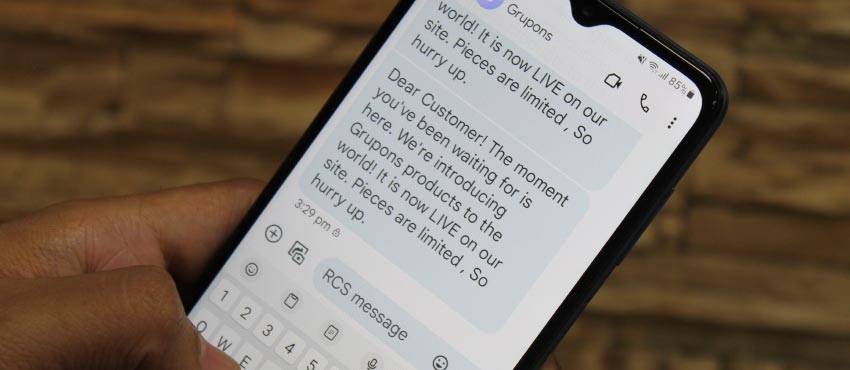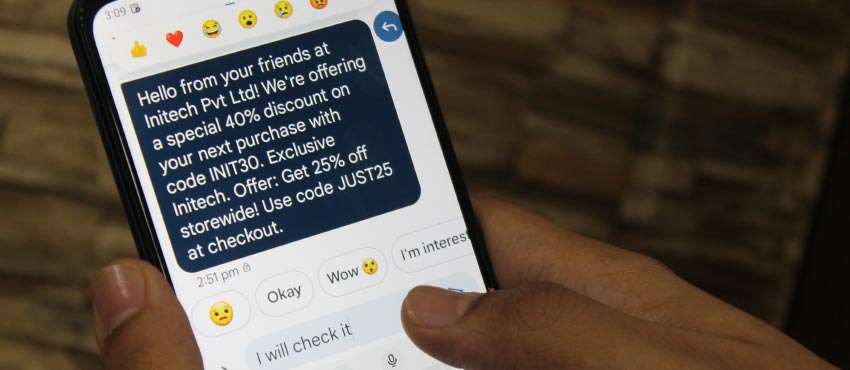Using a Bulk SMS service effectively involves implementing best practices to ensure that your SMS campaigns are successful, engaging, and compliant with regulations. Below are the key best practices to follow:

-
Segment Your Audience:
Divide your contact list into relevant segments based on demographics, behavior, or preferences. This allows you to send targeted and personalized messages to different groups, increasing the chances of engagement and conversion.
-
Craft Clear and Concise Messages:
Keep your messages brief, clear, and to the point. Stick to the character limit (usually 160 characters) and avoid using unnecessary jargon or complicated language. Deliver your message's core value in a straightforward manner.
-
Monitor Delivery and Metrics:
Keep track of delivery rates, open rates, and other relevant metrics using the reports provided by your Bulk SMS service. Analyze the data to understand campaign performance and make improvements accordingly.
-
Respect Opt-Out Requests:
Provide an easy and straightforward opt-out mechanism, such as "STOP" or "UNSUBSCRIBE." Promptly remove recipients who opt-out from your SMS list to comply with regulations and maintain a positive reputation.
-
Use URL Shorteners for Links:
If you include links in your SMS, use URL shorteners to save characters and make the message more concise. This also helps track link clicks and engagement.
-
Avoid Using All Caps:
Writing messages in all capital letters is considered shouting and may be perceived as spam. Stick to proper sentence case and avoid excessive punctuation.
-
Monitor Message Delivery Time:
Observe the time it takes for your messages to reach recipients. If there are delays, reach out to your Bulk SMS service provider to address the issue promptly.
-
Plan for Customer Support:
Be prepared to handle any customer inquiries or responses generated by your SMS campaigns. Promptly respond to any queries to enhance customer satisfaction.
-
Stay Compliant with Regulations:
Familiarize yourself with SMS marketing regulations in your country and adhere to them strictly. Ensure that you have proper consent from recipients to send them promotional messages.
-
Personalize When Possible:
Whenever feasible, include personalization tokens in your messages, such as the recipient's name. Personalization enhances engagement and makes recipients feel valued.
-
Use a Recognizable Sender ID:
Choose a sender ID that clearly identifies your brand or organization. A recognizable sender ID builds trust and improves the chances of your messages being read.
-
Timing Matters:
Be mindful of the time you send your messages. Avoid sending SMS during early morning or late at night. Choose appropriate times during the day when recipients are more likely to be receptive.
-
Frequency and Consistency:
Strike a balance between message frequency and consistency. Overwhelming recipients with too many messages can lead to opt-outs, while irregular messaging may result in decreased engagement. Find a sweet spot that keeps your audience engaged without being intrusive.
-
Include a Call-to-Action (CTA):
Provide a clear and compelling CTA in your SMS. Encourage recipients to take action, such as clicking on a link, making a call, or visiting a store. A well-defined CTA boosts response rates.
-
Test Before Sending:
Always test your SMS campaigns before sending them to the entire list. Check for any formatting issues, typos, or errors. Send test messages to yourself or colleagues to ensure everything looks and works as intended.
Limitations of Using a Bulk SMS Service
While Bulk SMS services offer numerous benefits for businesses and organizations, there are also some limitations and considerations to keep in mind. Here are some of the key limitations of using a Bulk SMS service:

-
Costs:
Bulk SMS services often charge for each message sent. While the cost per message is relatively low, it can add up quickly if you have a large recipient list or run frequent campaigns. Budgetary constraints may limit the number of messages you can send or the frequency of your campaigns.
-
Message Length:
SMS messages are limited to 160 characters in most cases. If you have a lot of information to convey, it can be challenging to fit it all within this character limit. Some services allow longer messages by concatenating multiple SMS, but it may incur higher costs and is not supported on all devices.
-
Delivery Guarantees:
Although Bulk SMS services strive for high delivery rates, they cannot guarantee that every message will be delivered successfully. Factors like mobile carrier restrictions, recipient device status, and network congestion can lead to occasional delivery failures or delays.
-
Limited Media Support:
SMS is primarily a text-based communication medium. While some Bulk SMS services allow sending multimedia messages (MMS), not all mobile devices support MMS, and these messages may have higher costs. Therefore, you might be limited to using text-only messages in your campaigns.
-
Permission-Based Marketing:
Bulk SMS campaigns require opt-in consent from recipients in many countries to comply with privacy regulations. This means you cannot send SMS messages to people who have not explicitly agreed to receive them, which can limit your potential audience size.
-
Spam and Compliance:
To avoid being marked as spam or facing legal issues, you must ensure compliance with SMS marketing regulations. This includes providing an easy opt-out mechanism, adhering to specific messaging frequency limits, and avoiding sending unsolicited messages.
-
Open Rates:
Unlike email marketing, where open rates can be accurately measured, SMS open rates can be harder to track. Most SMS services rely on URL tracking or other techniques to estimate open rates, but these metrics may not be as precise.
-
Engagement Challenges:
While SMS messages have high open rates, user engagement might not be as high as with other channels like email or social media. SMS is more suitable for concise and time-sensitive communications.
-
Geographic Limitations:
Some Bulk SMS services may not offer global coverage, limiting your ability to reach audiences in certain regions or countries.
Despite these limitations, Bulk SMS remains a valuable tool for businesses and organizations to reach their target audiences effectively, especially when used in conjunction with other marketing channels to create cohesive and comprehensive campaigns. Understanding the limitations helps you make informed decisions about incorporating Bulk SMS into your overall marketing strategy.